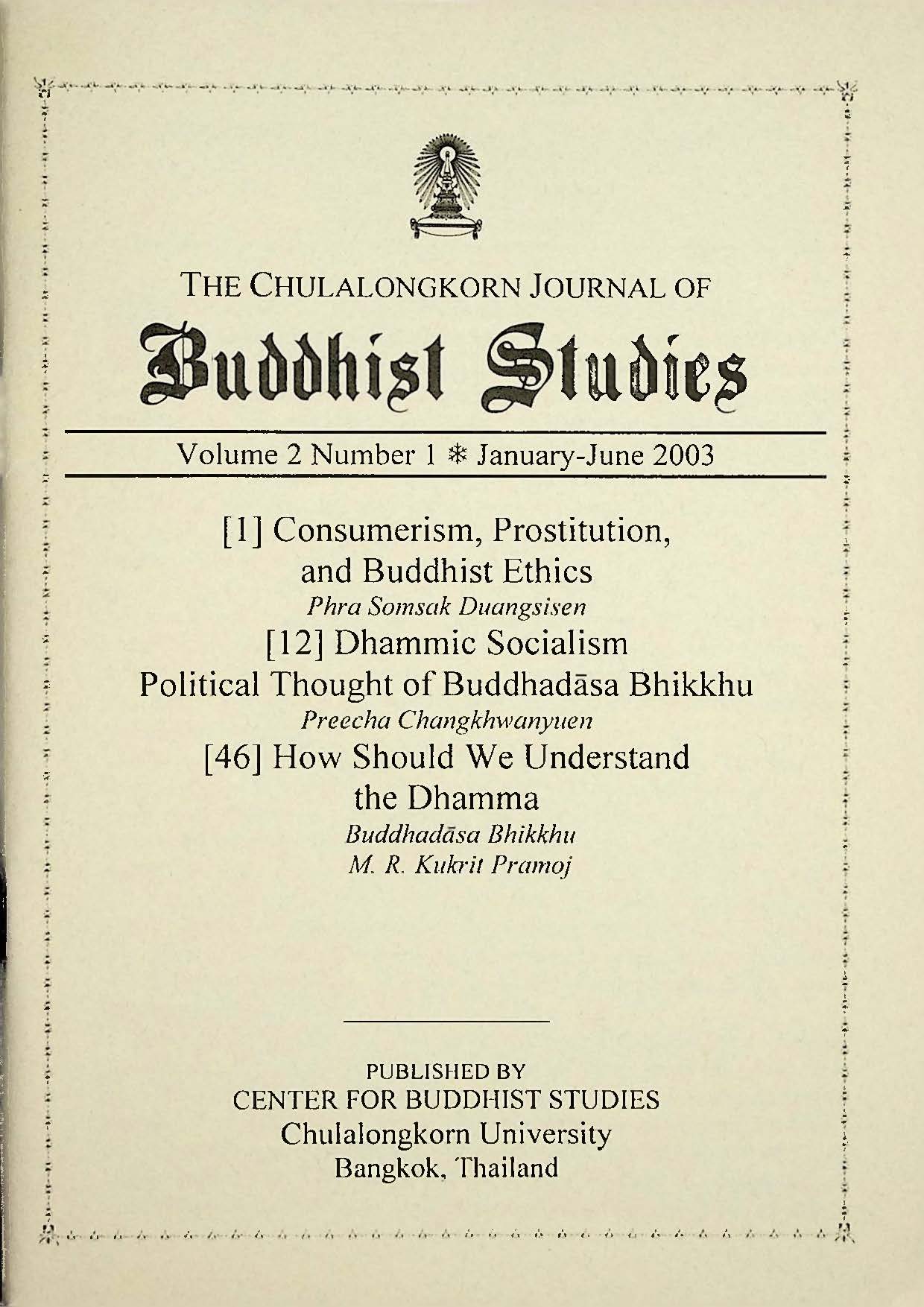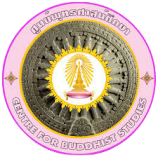CONSUMERISM, PROSTITUTION, AND BUDDHIST ETHICS
Abstract
This article is intended to examine the inter-relationship between globalization, consumerism, and prostitution and the role Buddhist ethics may play in tackling these problems. Background research revealed that although consumerism is beneficial in general, excessive consumerism or uncontrollable desire to consume brings about many subsequent problems, one of which is prostitution. One of the important factors driving people into prostitution is the need for an extra income for fulfillment through material possessions. Prostitution, therefore, is not caused solely by the drive to be free from poverty, but also by excessive desires. When these desires cannot be met by the compensation from decent employment, prostitution seems to stand out as a prominent shortcut. Religiously speaking, prostitution undermines the moral values in a society. Buddhist teachings must be applied to give guidance concerning prostitution quoting principles such as the principle of middle way (knowing moderation) and right livelihood (knowing wise consumption) will lead to well-being.
According to the field work undertaken at Dok Kham Tai village, a place rather well known as one among Thai villages where people seem to adopt prostitution as not immoral, the consumption pattern has been influenced by consumerism and perceived more as a “means” of having higher prestige, rather than an “end" in itself. The addiction to status symbols means people give more importance to a material than its essence per se. It may be concluded then that economic concern is the root cause driving girls/children at Dok Kham Tai village to enter prostitution, either as a means of supporting their parents and/or family, or out of the desire for a better status of life.
Although it is very difficult to prevent girls/children from entering prostitution, it is still possible to discourage them from doing so. For example, if villagers could practice the middle way of living and right livelihood it would help, to a certain extent, to solve this problem. Buddhism does not directly condemn prostitution, but the harm, deceit, and disease caused by this occupation are acknowledged as dangerous. It strengthens the lustful while weakening the power of love. With regard to economic pressure, people at this village have to put more efforts into working to support their families and subsequently incorporate the Buddhist teachings into their everyday lives. Therefore, it is a new challenge for Buddhist monks to help the villagers to turn their minds and hearts from being engrossed in materialism to spirituality. Apart from this task, the monks have to translate their compassion into concrete action by training the villagers to have alternative sources of income to supplement their occupations.







